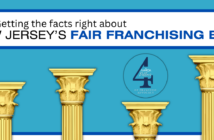Hot points and key issues
by ROBERT BRAUN
Most hotel owners are franchisees; they enter into an agreement with a brand to operate a franchise under a specific flag and agree to follow all requirements the brand imposes on the owner. Brands characterize their franchise agreements as personal to the franchisee (not the property). The brand grants the franchise to a specific person or entity in reliance on the individual franchisee, and the franchise agreement is transferable only in limited situations such as to family members, or where minority, passive owners are added. But a sale of the hotel, or the transfer of control of the franchisee, without the approval of the franchisor will almost always be grounds for termination of the franchise agreement and payment of liquidated damages, which can exceed five years of royalty fees and marketing fees, repayment of key money, and other costs.
Since most franchisees have an investment horizon that contemplates the sale of the property long before the end of the franchise term (typically 20 years and often longer), selling a franchised property raises key issues that owners need to consider, both when they enter into the franchise and when they contemplate a sale.
KEEP THE FRANCHISE OR TERMINATE?
One threshold issue is whether a buyer will want to keep the franchise or change the flag. There can be a variety of reasons to change the flag. A buyer may have a relationship with a different brand, the flag may not be performing adequately, it may impose costs that the prospective owner does not want to bear, and so on. It is sometimes (rarely) possible to negotiate a termination on sale provision in a franchise agreement, but if that doesn’t exist, sellers and buyers must consider their options for early termination of a franchise agreement.
PURCHASE AGREEMENT PROVISIONS
Both the buyer and seller should consider what happens if the franchisor does not approve the transfer of the franchise or if the conditions for transfer are unacceptable to either the buyer or seller. For example, the buyer may object to the terms of a guarantee or the scope of a property-improvement plan. The impact of these and other issues should be contemplated in the purchase agreement.
WHEN TO START TALKING TO THE FRANCHISOR
Start early. While the rules for a transfer are set out in a franchise agreement, there are always unique issues that might arise, and discovering those early will facilitate any transition. It may also be the best time to put in motion things that might create real advantages. Franchisors can, and do, require property improvement plans (PIP) in connection with a transfer of ownership, and identifying the scope, cost, and timing of a PIP can be a huge stumbling point in a transaction. If key money is at issue, the ability to transfer the obligation to a successor can make the difference between a financially viable transfer or a failed deal. And, as noted below, identifying business terms that can be carried over into a new franchise agreement is a key consideration.
ENTERING INTO A NEW FRANCHISE AGREEMENT
If the new owner intends to retain the flag, brands will almost universally require the franchisee to enter into a new franchise agreement. Since franchisees modify their agreements annually, sometimes in significant ways, this allows franchisors to get the benefits of their new form. At that point, a buyer needs to identify the business terms that could be carried over from the existing agreement. These might include royalty or marketing fees, waivers of certain franchise system requirements, and other factors that make the existing property attractive.
NEGOTIATING THE FRANCHISE AGREEMENT
A prospective purchaser will often want changes from the form of franchise agreement provided by the brand. Any hotel franchisee or prospective franchisee should consider changes carefully. Franchise agreements are intentionally designed to be highly favorable to the brand, and brands are unwilling to make changes. That position is even more pronounced in a change of ownership. Unlike a newly built property, a brand will not agree to many common concessions in an ownership change. A purchaser should be aware that, absent special circumstances, brands rarely provide an area of protection to avoid competition, a ramp-up of fees, or other variations from their forms.
GUARANTEES
Franchisors almost always require a financially responsible party to guarantee the franchisee’s obligations under the franchise agreement, including payment of liquidated damages and unamortized key money. Franchisors typically look for personal guarantee. This means that part of any sale or transfer of a franchised hotel must address the termination of an existing guarantee and the terms of a new guarantee. A franchisee can seek a monetary cap to the guarantee, utilize an entity instead of a personal guarantor, or both.
MANAGEMENT
Brands, particularly major brands, are increasingly selective as to whom they allow to manage properties. If the existing manager will be held over, that agreement needs to be negotiated (and owners should note that a third-party management agreement is more likely to be transferable than a franchise agreement). If the new owners intend to engage a new manager, the terms of termination of the old manager and the qualification of the new manager must be negotiated.
FINANCING
Franchisors often have approval rights over financing. Among other things, franchisors look at the identity of lenders and their principals to confirm they don’t conflict with United States anti-terrorism laws such as the Bank Secrecy Act and the USA Patriot Act. Franchisees need to confirm that the franchisor will cooperate with the lender and, importantly, provide a commercially reasonable comfort letter that lenders need to ensure that they can realize on the security, if needed.
These are just a few of the key issues that often arise in the purchase and sale of a hotel, and doing your homework before entering into such a venture can often prevent major headaches later on.
Robert Braun is a partner in the Los Angeles law firm of Jeffer Mangels Butler & Mitchell LLP where his practice, spanning more than 30 years, focuses on corporate, finance, and securities law with an emphasis on emerging technologies, hospitality, and business transactions. To learn more, visit www.hotellawyer.com.




